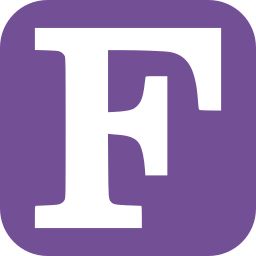Fortran newsletter: June 2020#
Welcome to the June 2020 edition of the monthly Fortran newsletter. The newsletter comes out on the first calendar day of every month and details Fortran news from the previous month.
fortran-lang.org#
The Fortran website has been up since mid-April, and we’ve already got great feedback from the community. In the past month we’ve updated the Compilers page which is now comprehensive and includes all major open source and commercial compilers. The Learn page has also seen significant updates—it’s been reorganized for easier navigation and currently features a quickstart tutorial, Fortran books, and other online resources.
If you haven’t yet, please explore the website and let us know if you have any suggestions for improvement. Specifically, we’ll be focusing on the Learn page and its mini-books in the coming months. Please help us make them better!
Here are some specific items that we worked on:
Fortran Discourse#
On May 4 we launched the Fortran Discourse, an online discussion board for anything and everything Fortran related. You can use it discuss the Fortran language, ask for help, announce events and/or personal projects, or just lurk around. There are already quite a few interesting discussions going on. Join us!
Fortran Standard Library#
Recently we launched a website for the API documentation of the Fortran Standard Library. The website is automaticaly generated by FORD. Code of Conduct, licence, and workflow for contributing to the Fortran Standard Library can also be found on the website.
Here’s what’s new in the Fortran Standard Library:
#191 WIP: Function for computing Pearson correlations among elements of an array in the
stdlib_experimental_statsmodule#189 WIP: Procedures for sparse matrices operations. Ongoing discussion on the API can be found here.
#183 Automatic API-doc generation and deployment of this stdlib website
#170 Addition of the new functions
diag,eye, andtracefunctions to make working with matrices easier. Read the full specifications here.
Package Manager#
In this past month support for dependencies between packages has been added to the Fortran Package Manager (fpm). You can specify either a path to another folder on your machine with an fpm package, or a git repository (and optionally a specific branch, tag or commit) that contains the package. fpm will then take care of fetching the dependency for you (if necessary) and any packages it depends on, and compiling and linking it into your project. Check out an example hello world package that uses this functionality.
fpm is still in very early development, and we need as much help as we can get. Here’s how you can help today:
Try to use it. Does it work? No? Let us know! Read the fpm packaging guide to learn how to build your package with fpm.
Browse the open issues and see if you can help implement any fixes or features.
Adapt your Fortran package for fpm.
Improve the documentation.
The short term goal of fpm is to make development and installation of Fortran packages with dependencies easier. Its long term goal is to build a rich and decentralized ecosystem of Fortran packages and create a healthy environment in which new open source Fortran projects are created and published with ease.
Specific items that are new this month:
Events#
We hosted the very first Fortran Monthly call on May 14. The turnout was astonishing–over 23 people joined. You can read the notes from the call here. We’ll have another one this month. Subscribe to the mailing list and/or join the Discourse to stay tuned.
FortranCon 2020 will take place on July 2-4 in Zurich, Switzerland. Virtual participation is enabled for both attendees and speakers. Registration is free and due by June 1, 2020. There are quite a few submissions from the fortran-lang community: A talk on stdlib by Jeremie Vandenplas, one about the Fortran Package Manager (fpm) by Brad Richardson, a talk on LFortran compiler by Ondřej Čertík, as well as one about building the Fortran community by Milan Curcic.
J3/WG5 joint meeting, originally slated for October 12-16 in Las Vegas, Nevada, has been cancelled. However, the work on proposals for the Fortran Standard doesn’t stop. You can submit a proposal for the Standards committee here. For reference, you can read the notes from the February meeting.
Contributors#
We thank everybody who contributed to fortran-lang in the past month by commenting in any of the four repositories fortran-lang/stdlib, fortran-lang/fpm, fortran-lang/fortran-lang.org, j3-fortran/fortran_proposals:
Ondřej Čertík (@certik), Milan Curcic (@milancurcic), Laurence Kedward (@LKedward), Jeremie Vandenplas (@jvdp1), Brad Richardson (@everythingfunctional), Izaak „Zaak“ Beekman (@zbeekman), Martin Diehl (@MarDiehl), @arjenmarkus, Van Snyder (@vansnyder), @FortranFan, @epagone, Ivan (@ivan-pi), Neil Carlson (@nncarlson), Ashwin Vishnu (@ashwinvis), Williams A. Lima (@ghwilliams), Peter Klausler (@klausler), Chris MacMackin (@cmacmackin), Pedro Costa (@p-costa), @mobius-eng, Salvatore Filippone (@sfilippone), @ShamanTcler, Amit Kumar (@aktech), Bálint Aradi (@aradi), Melissa Weber Mendonça (@melissawm), Jacob Williams (@jacobwilliams), Rohit Goswami (@HaoZeke), Amir Shahmoradi (@shahmoradi), Bill Long (@longb).
